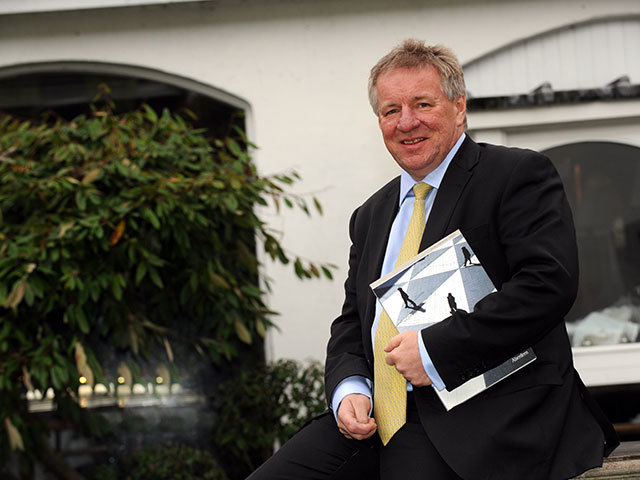
Aberdeen Asset Management’s revenue was down 14% to £1billion.
The firm’s underlying profit before tax fell from last year’s £491.6million to £352.7million.
Despite the drops, the company has a steady net cash position of £548.8million.
Martin Gilbert, chief executive of Aberdeen Asset Management,said: “These financial results reflect, in part, our diversified business model and strict cost management. Economic and political newsflow has weighed on investor sentiment and as expected has led to further outflows from our business.
“Structural themes including fee pressure, technological innovation and greater regulatory requirements are a focus for all asset managers. Aberdeen’s broad range of investment capabilities and global distribution platform means we are well placed to address these challenges and also benefit from the opportunities they create. By continuing to invest in the business and by being a good steward of our customers money we are committed to helping our investors – from individuals through to institutions – achieve their financial goals.”
During the past year, AAM acquired Arden, Advance and Parmenion adding £9.5billion of assets under its management.
The company is also implementing a £50million cost efficiency programme.
Chairman Simon Troghton said: “We have implemented the first £50 million of our cost efficiency programme during the year and, on a constant currency basis, the phasing of these savings has reduced 2016 costs by £28 million, thus negating the additional costs introduced by the FLAG, Arden, Advance and Parmenion acquisitions. However, the effect of sterling weakness has increased our overseas costs, such that, overall, costs have increased by 1%.”
The financial implications of Brexit were also still “largely unknown”, according to the chairman.
He said: “Until the negotiation begins formally, expected by the end of March 2017, the terms of the withdrawal and any impact will be largely unknown. We do not expect either our non-UK or UK businesses to be affected in a substantive way by the result of the referendum, although there may be regulatory and/or legal changes in the longer term.
“Our principal cross-border fund range for European investors outside the UK has been domiciled in Luxembourg for many years. Beyond the fund range, the core issue is how we will be able to provide our investment management skills from the UK into the EU market – whether through the benefit of passporting, acceptance that the UK forms
an ‘equivalent’ regime or through co-operation agreements with member states.”
Despite the uncertainty, Mr Troghton said AAM would not allow market volatility to “distract us from our long term approach to investing”.
“Our primary objective remains unchanged – to ensure that our clients achieve the long term outcomes that they expect – and we remain fully focused on this goal. We enter the new financial year with a healthy balance sheet and as a full-service asset manager with a strong distribution focus, and a broad range of capabilities which can adapt to changing investor appetites to enable us to remain competitive in a rapidly adapting market,” he said.
“The asset management sector is facing three head winds: fee pressure, increased investment in technology and regulatory capital requirements. We will continue to seek further cost efficiencies, whilst also being prepared to make appropriate investment in innovation and otherwise supporting the future growth of the business and motivating our diverse workforce.
“We welcome the FCA’s interim report on its review of the competitiveness of the UK investment sector as it focuses attention on some key industry issues impacting customers. Asset managers play a vital role in helping investors achieve their financial goals and the FCA’s proposals will help deliver this for the UK industry, making it more attractive on the global stage by leading the way in best practice. There is a need for increased transparency in relation to the services provided, the costs of such services and also for ensuring value for money.
“Future political and economic events, including the UK’s negotiations to exit the EU, the start of President-elect Trump’s term in office and European elections, will contribute to ongoing volatility in global markets in the short term. However, until there is greater clarity, it is difficult to predict the impact on markets over the medium and longer term. We will not allow any such volatility to distract us from our long term approach to investing, and we remain well positioned to identify and grasp the opportunities that may arise to deliver further profitable growth.”
Recommended for you
